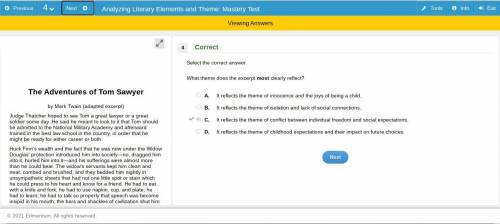Suppose you stumbled upon a passage brimming with complex expressions, historical references, and obscure terminologies. In such a situation, discerning the most relevant classification for the excerpt can be a perplexing endeavor. However, by unraveling a series of essential clues concealed within the text, one can skillfully assign it to its rightful category, unlocking a pathway toward deeper comprehension.

Image: estudyassistant.com
To embark on this intellectual expedition, we must first recognize that written compositions manifest themselves in a rich array of forms, each possessing a distinctive purpose and style. From captivating narratives that transport us to distant lands to insightful essays that illuminate our understanding of the world, the literary landscape is a vast and ever-evolving tapestry. Identifying the category of a particular excerpt provides us with a valuable compass, guiding us through this labyrinthine terrain and enabling us to appreciate its unique contributions to the realm of literature.
Let us now delve into the intricacies of discerning the category of a given excerpt. As we navigate the text, we should be mindful of key indicators that betray its underlying nature. Consider the following emblematic signposts:
-
Language and Style: The language employed within the excerpt offers valuable insights into its category. Is it adorned with flowery prose and archaic terms, hinting at a poetic genre? Or does it adopt a more straightforward and objective tone, characteristic of scientific writing?
-
Purpose and Audience: Unraveling the purpose of the excerpt, be it to inform, persuade, or entertain, can illuminate its category. Likewise, the target audience, whether scholars, laypeople, or a specific professional group, provides further clues.
-
Structure and Organization: The manner in which the excerpt is structured and organized can also reveal its category. For instance, an academic paper typically adheres to a formal structure with an introduction, body, and conclusion, while a fictional story often unfolds through a captivating sequence of scenes.
By carefully examining these textual breadcrumbs, we progressively narrow down the possible categories until we arrive at a definitive conclusion. Let us now turn our attention to some of the most common categories encountered in the literary realm:
Fiction: Fiction captivates readers by immersing them in imaginative worlds filled with characters, settings, and plots that stem from the boundless depths of an author’s mind. Novels, short stories, and plays all reside within the enchanting realm of fiction, transporting us to distant realms and introducing us to unforgettable characters.
Non-Fiction: In contrast to fiction, non-fiction delves into the fascinating tapestry of real-world events, ideas, and discoveries. From historical accounts to scientific treatises to personal memoirs, non-fiction unveils the complexities of our world and expands our knowledge horizons.
Poetry: Poetry, with its exquisite language and poignant imagery, paints vivid pictures that resonate deep within the human soul. Poems explore the spectrum of human emotions, delve into philosophical musings, and capture the essence of our shared experiences.
Drama: Drama unfolds on the stage, captivating audiences with its powerful storytelling and exploration of human nature. Plays engage us through dialogue, action, and character development, delving into the complexities of human relationships and societal issues.
Academic Writing: Academic writing, a cornerstone of scholarly discourse, disseminates knowledge and promotes critical thinking. Theses, dissertations, and research papers meticulously examine specific subjects, presenting original findings and contributing to the advancement of various fields.
To further solidify our understanding, let us consider a few illustrative examples:
-
An excerpt brimming with vivid descriptions of landscapes and characters, interwoven with a captivating plot and dialogue, most likely falls under the category of fiction.
-
A passage elucidating the latest scientific discoveries, employing precise terminology and presenting empirical data, likely belongs to the realm of non-fiction.
-
A composition saturated with metaphorical language, exploring themes of love and loss, and adhering to a specific poetic form, would be aptly classified as poetry.
As we navigate the literary landscape, we encounter a myriad of texts that defy easy categorization, blurring the boundaries between genres. Hybrid forms, such as creative non-fiction or historical fiction, emerge, challenging our conventional notions and inviting us to explore the fascinating intersections of literary expression.
In conclusion, discerning the category of a given excerpt requires a keen eye for detail, an analytical mind, and a familiarity with the diverse tapestry of literary genres. By scrutinizing textual clues related to language, structure, purpose, and audience, we unlock the gateway to deeper comprehension, enabling us to appreciate the unique contributions each category makes to the boundless world of literature. So, next time you encounter an enigmatic excerpt, embark on a literary detective journey, unraveling its hidden clues and assigning it to its rightful category, thus expanding your literary horizons and savoring the richness of written expression.

Image: www.newsy-today.com
This Excerpt Most Likely Falls In The Category Of: